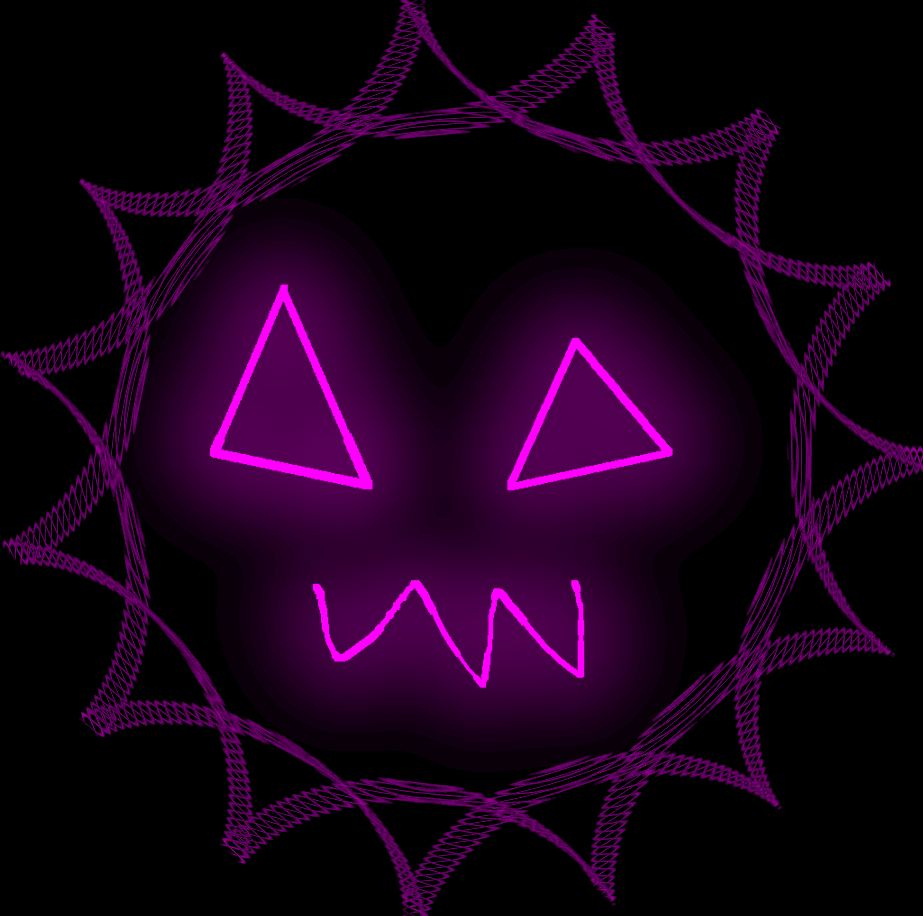I’d learned somewhere along the line that Natural numbers (that is, the set ℕ) are all the positive integers and zero. Without zero, I was told this were the Whole numbers. I see on wikipedia (as I was digging up that Unicode symbol) that this is contested now. Seems very silly.
But is zero a positive number?
Weird, I learned the exact reverse. The recommended mnemonic was that the whole numbers included zero because zero has a hole in it.
I think whole numbers don’t really exist outside of US high schools. Never learnt about them or seen them in a book/paper at least.
Actually “whole numbers” (at least if translated literally into German) exist outside America! However, they most absolutely (aka are defined to) contain 0. Because in Germany “whole numbers” are all negative, positive and neutral (aka 0) numbers with only an integer part (aka -N u {0} u N [no that extra 0 is not because N doesn’t contain it but just because this definition works regardless of wether you yourself count it as part of N or not]).
I wouldn’t be surprised. I also went to school in MS and LA so being taught math poorly is the least of my educational issues. At least the Natural numbers (probably) never enslaved anyone and then claimed it was really about heritage and tradition.
Natural numbers are used commonly in mathematics across the world. Sequences are fundamental to the field of analysis, and a sequence is a function whose domain is the natural numbers.
You also need to index sets and those indices are usually natural numbers. Whether you index starting at 0 or 1 is pretty inconsistent, and you end up needing to specify whether or not you include 0 when you talk about the natural numbers.
Edit: I misread and didn’t see you were talking about whole numbers. I’m going to leave the comment anyway because it’s still kind of relevant.
Zero grew up from the seeds of the undefined, just like negative numbers and people who refuse to accept that the square root only has one value. Undefined is a pathway to many abilities some would consider unnatural.
I just found out about this debate and it’s patently absurd. The ISO 80000-2 standard defines ℕ as including 0 and it’s foundational in basically all of mathematics and computer science. Excluding 0 is a fringe position and shouldn’t be taken seriously.
Ehh, among American academic mathematicians, including 0 is the fringe position. It’s not a “debate,” it’s just a different convention. There are numerous ISO standards which would be highly unusual in American academia.
FWIW I was taught that the inclusion of 0 is a French tradition.
I have yet to meet a single logician, american or otherwise, who would use the definition without 0.
That said, it seems to depend on the field. I think I’ve had this discussion with a friend working in analysis.
I did say mathematician, not logician.
Logicians are mathematicians. Well, most of them are.
But not all mathematicians are logicians.
Logically.
This isn’t strictly true. I went to school for math in America, and I don’t think I’ve ever encountered a zero-exclusive definition of the natural numbers.
It is true.
The US is one of 3 countries on the planet that still stubbornly primarily uses imperial units. “The US doesn’t do it that way” isn’t a great argument for not adopting a standard.
I’m an American mathematician, and I’ve never experienced a situation where 0 being an element of the Naturals was called out. It’s less ubiquitous than I’d like it to be, but at worst they’re considered equally viable conventions of notation or else undecided.
I’ve always used N to indicate the naturals including 0, and that’s what was taught to me in my foundations class.
Of course they’re considered equally viable conventions, it’s just that one is prevalent among Americans and the other isn’t.
I think you’re using a fringe definition of the word “fringe”.
I’m not.
I could be completely wrong, but I doubt any of my (US) professors would reference an ISO definition, and may not even know it exists. Mathematicians in my experience are far less concerned about the terminology or symbols used to describe something as long as they’re clearly defined. In fact, they’ll probably make up their own symbology just because it’s slightly more convenient for their proof.
they’ll probably make up their own symbology just because it’s slightly more convenient for their proof
I feel so thoroughly called out RN. 😂
I hate those guys. I had that one prof at uni and he reinvented every possible symbol and everything was so different. It was a pita to learn from external material.
From what i understand, you can pay iso to standardise anything. So it’s only useful for interoperability.
Yeah, interoperability. Like every software implementation of natural numbers that include 0.
How programmers utilize something doesn’t mean it’s the mathematical standard, idk why ISO would be a reference for this at all
Because ISO is the International Organisation for Standardization
Yes, but it’s not for mathematicians. It’s for the applied fields.
Can I pay them to make my dick length the ISO standard?
I feel they have an image to maintain, but i also feel they would sell out for enough money. So… tell me if you make it.
My experience (bachelor’s in math and physics, but I went into physics) is that if you want to be clear about including zero or not you add a subscript or superscript to specify. For non-negative integers you add a subscript zero (ℕ_0). For strictly positive natural numbers you can either do ℕ_1 or ℕ^+.
Yeah dont do that.
So 0 is hard. But you know what? Tell me what none-whole number follows right after or before 0. That’s right, we don’t even have a thing to call that number.
±ε
I think p-adic has that
Definition of natural numbers is the same as non-negative numbers, so of course 0 is a natural number.
In some countries, zero is neither positive nor negative. But in others, it is both positive and negative. So saying the set of natural number is the same as non-negative [integers] doesn’t really help. (Also, obviously not everyone would even agree that with that definition regardless of whether zero is negative.)
But -0 is also 0, so it can’t be natural number.
Counterpoint: if you say you have a number of things, you have at least two things, so maybe 1 is not a number either. (I’m going to run away and hide now)
“I have a number of things and that number is 1”
I have a number of friends and that number is 0
I have a number of money and number is -3567
I’m willing to die on this hill with you because I find it hilarious
Another Roof has a good video on this. At some points One was considered “just” the unit, and a Number was some multiple of units.
I like how whenever there’s a pedantic viral math “problem” half of the replies are just worshiping one answer blindly because that’s how their school happened to teach it.
I think if you ask any mathematician (or any academic that uses math professionally, for that matter), 0 is a natural number.
There is nothing natural about not having an additive identity in your semiring.
Negative Zero stole my heart
Why do we even use natural numbers as a subset?
There are whole numbers already
I’m not too good at math but i think it’s because the set of integers is defined as the set that contains all natural numbers and their opposites, while the set of natural numbers is defined using the successor function - 0 (or 1) is a natural number; if a number n natural, then S(n) is natural where S(n) = n+1.
Thanks!
But if we talk whole numbers, we just change the rule that if n is whole, then S(n) is whole where S(n)=n±1.
Essentially just adding possibility for minus again.
Apparently some people are scared of negative numbers.
They’re not natural
Zero is a number. Need I say more?
Bbbutt… Is it a “Natural” number?
Well, you can naturally have zero of something. In fact, you have zero of most things right now.
How do you know so much about my life?
But there are an infinite number of things that you don’t have any of, so if you count them all together the number is actually not zero (because zero times infinity is undefined).
There’s a limit to the number of things unless you’re counting spatial positioning as a characteristic of things and there is not a limit to that.
there’s no limit to the things you don’t have, because that includes all of the things that don’t exist.
Only if you’re able to define things that don’t exist by infinities.
I am.

How do I have anything if I have nothing of something?
I have seen arguments for zero being countable because of some transitive property with not counting still being an option in an arbitrary set of numbers you have the ability to count to intuitively.
My favourite part is all the replies claiming that their answer to it is correct and it’s not at all controversial.
Which is funny because to a mathsless individual like me it proves how true the post is.
the standard (set theoretic) construction of the natural numbers starts with 0 (the empty set) and then builds up the other numbers from there. so to me it seems “natural” to include it in the set of natural numbers.
On top of that, I don’t think it’s particularly useful to have 2 different easy shorthands for the positive integers, when it means that referring to the union of the positive integers and the singleton of 0 becomes cumbersome as a result.
How can nothing be a number
Hi, mathematician here. What’s a “number”?
Wouldnt it be best to think of it more as the representation of the absence of something?
Because a number isn’t just a representation of a size or amount - that’s called a scalar. A number can also represent a point in a space, the label of a vertex on a graph and probably some other things too.
BTW, 0 is typically considered a scalar. As in mathematics scalar is typically defined as a field, which would require an additive identity, namely 0.













